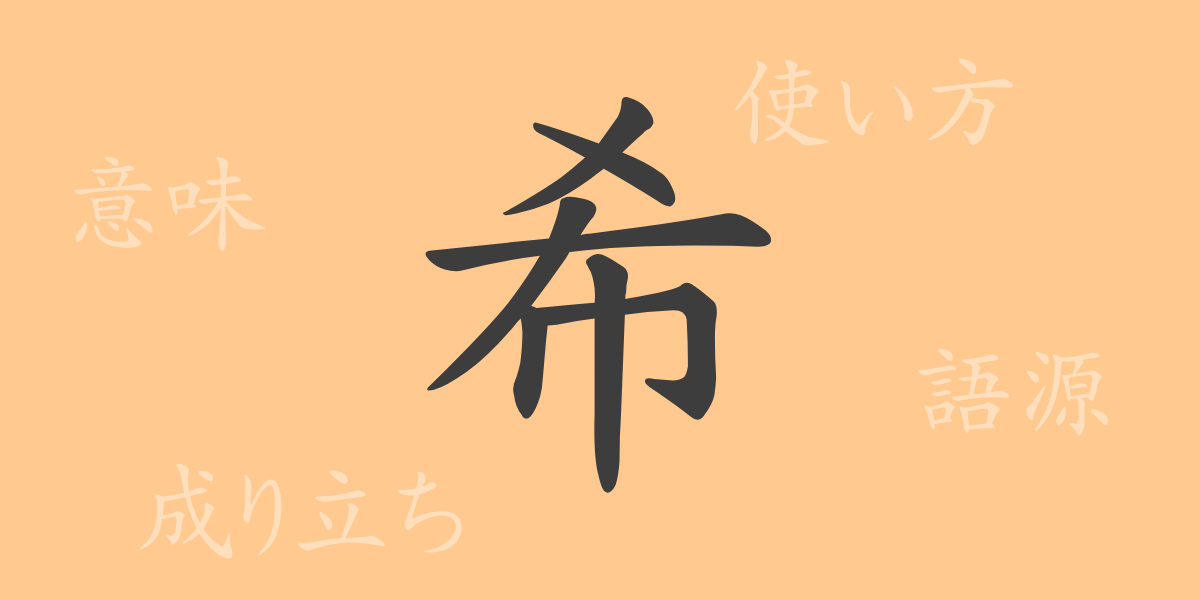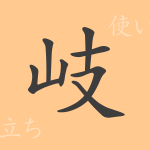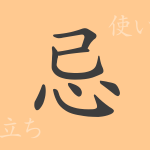In the Japanese language, each kanji character holds its own unique beauty and deep meaning. The character “希” (き(キ), rare/hope), with its delicate strokes, paints the concept of hope in our hearts. This article delves into the allure of “希”, exploring its etymology, modern usage, pronunciation, stroke count, and even idioms and phrases that include this character. Let’s explore the infinite possibilities held within a single kanji character together.
The Origin (Etymology) of 希
The kanji “希” originated in ancient China. Its original form combined the character for cloth, “巾” (きん(キン)), with the symbol for an axe, “斤” (おの(オノ)). Over time, this combination, signifying a rare cloth, evolved to mean “something rare.” This meaning expanded, and “希” came to be used as a character representing rarity or scarcity, such as “まれ” (rare) and “稀” (き(キ), rare).
Meaning and Usage of 希
Beyond the meanings of “rare” and “scarce”, “希” also signifies “hope.” This character is used to express the scarcity and preciousness of things, or the act of hoping. For example, the term “希少価値” (きしょうかち(キショウカチ), rare value) conveys the idea of a value that is rarely found, while “希望を持つ” (きぼうをもつ(キボウヲモツ), to have hope) expresses the concept of hope or expectation for the future.
Pronunciation, Stroke Count, and Radical of 希
The pronunciation, stroke count, and radical of the kanji “希” are fundamental pieces of information in learning Japanese.
- Pronunciation: The onyomi (Chinese reading) is “キ” (キ), and the kunyomi (Japanese reading) is “まれ” (まれ).
- Stroke Count: A total of 7 strokes.
- Radical: The radical is “巾” (はば(ハバ)).
Idioms, Phrases, and Proverbs Using 希 and Their Meanings
Idioms, phrases, and proverbs containing “希” are good examples of the breadth of meaning this character can convey.
- 希望 (きぼう(キボウ)): To have hopes or expectations.
- 希薄 (きはく(キハク)): The state of being thin or diluted in degree or density.
- 希少 (きしょう(キショウ)): Being extremely rare and unusual.
- 希求 (ききゅう(キキュウ)): To desire fervently.
- “希望は縁の下の力持ち” (きぼうはえんのしたのちからもち(キボウハエンノシタノチカラモチ)): A metaphor meaning hope is an important but often unseen source of support.
Conclusion on 希
The kanji “希” conveys numerous messages through both its form and meaning. It signifies scarcity while also evoking the positive emotion of hope. The care and wishes embedded in this single character tell a story of the richness of Japanese expression and play a significant role in our language. As we continue to cherish the meanings held by “希”, we hope to foster rich communication through our words.

























